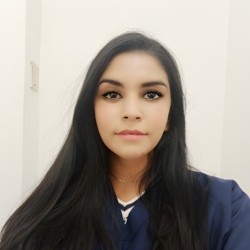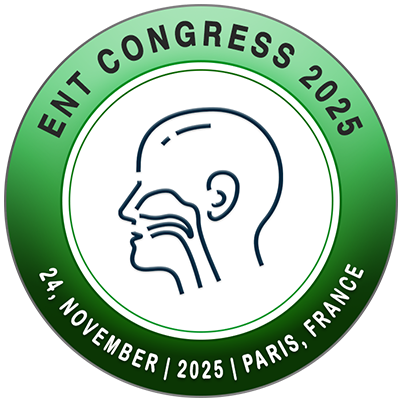
Kajal Ramnarian
University of KwaZulu-Natal, South AfricaPresentation Title:
The knowledge and practices of healthcare professionals Kwazulu-natal on ototoxic hearing loss in children receiving platinum chemotherapeutic drugs
Abstract
Background: Platinum-based chemotherapy poses a risk of ototoxic hearing loss, the effects of which can be devastatinginpaediatrics with cancer. Childhood hearing loss significantly impacts speech and language acquisition andeducational,psychosocial, and emotional development, consequently negatively impacting quality of life. Adequate knowledgeandeffective management by healthcare professionals in the team managing paediatrics with cancer are, therefore, pivotaltomitigating the severity and impact on quality of life. Objectives: To describe the knowledge and practices of healthcare professionals on the management of ototoxichearingloss in children receiving platinum-based chemotherapy drugs.
Method: Using a descriptive survey design, data was collected from self-administered questionnaires completedbyseventy-four healthcare professionals from two hospitals in KwaZulu-Natal, South Africa. Results: Fort-five participants (60.8%) identified ototoxicity as a side effect of platinum-based chemotherapeuticdrugs,while 43 participants (58.1%) identified dose, duration, and mode of administration as risk factors, and 43participants(72.9%) did not know the duration of an ototoxicity monitoring programme post-treatment. Fifty participants(68%)accurately identified most of their roles within the ototoxicity monitoring programme. Most participants (n=73; 99%)didnot fully adhere to HPCSA ototoxicity monitoring guidelines. However, a positive outcome was that 70 participants(94.6%)acknowledged the importance of the ototoxicity monitoring programme for children receiving platinum-basedchemotherapy.
Conclusion: The current study demonstrates a clear correlation between healthcare professionals’ practices andtheirlevelof knowledge. These findings underscore the importance of improving the knowledge base of healthcare professionalsinvolved in ototoxicity monitoring programs to enhance their practices effectively.
Contribution: This study identified areas requiring improvement in managing ototoxicity in this patient group, promptingthe inclusion of ototoxicity training. This study supports audiologists in effectively implementing and overseeingototoxicitymonitoring programs.
Biography
Kajal Ramnarian is a dedicated audiologist, private practice owner, and clinical supervisor at the University of KwaZulu-Natal(UKZN). With over a decade of professional experience, she is committed to advancing both patient care and clinical educationinthe field of audiology. Since 2017, Ms. Ramnarian has served as a clinical supervisor at UKZN, where she plays a pivotal role in shaping the next
generation of audiologists through comprehensive academic instruction and hands-on clinical training. Her guidance havecontributed significantly to the development of competent, compassionate professionals in the audiology field. She holds a master’s degree in Audiology from the University of KwaZulu-Natal and has contributed to scholarly researchinthediscipline. Her work on healthcare professionals’ knowledge and practices in managing ototoxicity in children with cancer waspublished in the South African Journal of Communication Disorders, highlighting her commitment to evidence-basedpractice. In 2025, Ms. Ramnarian expanded her professional portfolio by establishing a private audiology practice. She is passionateaboutmaking hearing healthcare accessible and affordable, and she remains dedicated to delivering exceptional care with a strongfocuson achieving the best possible outcomes for her patients

